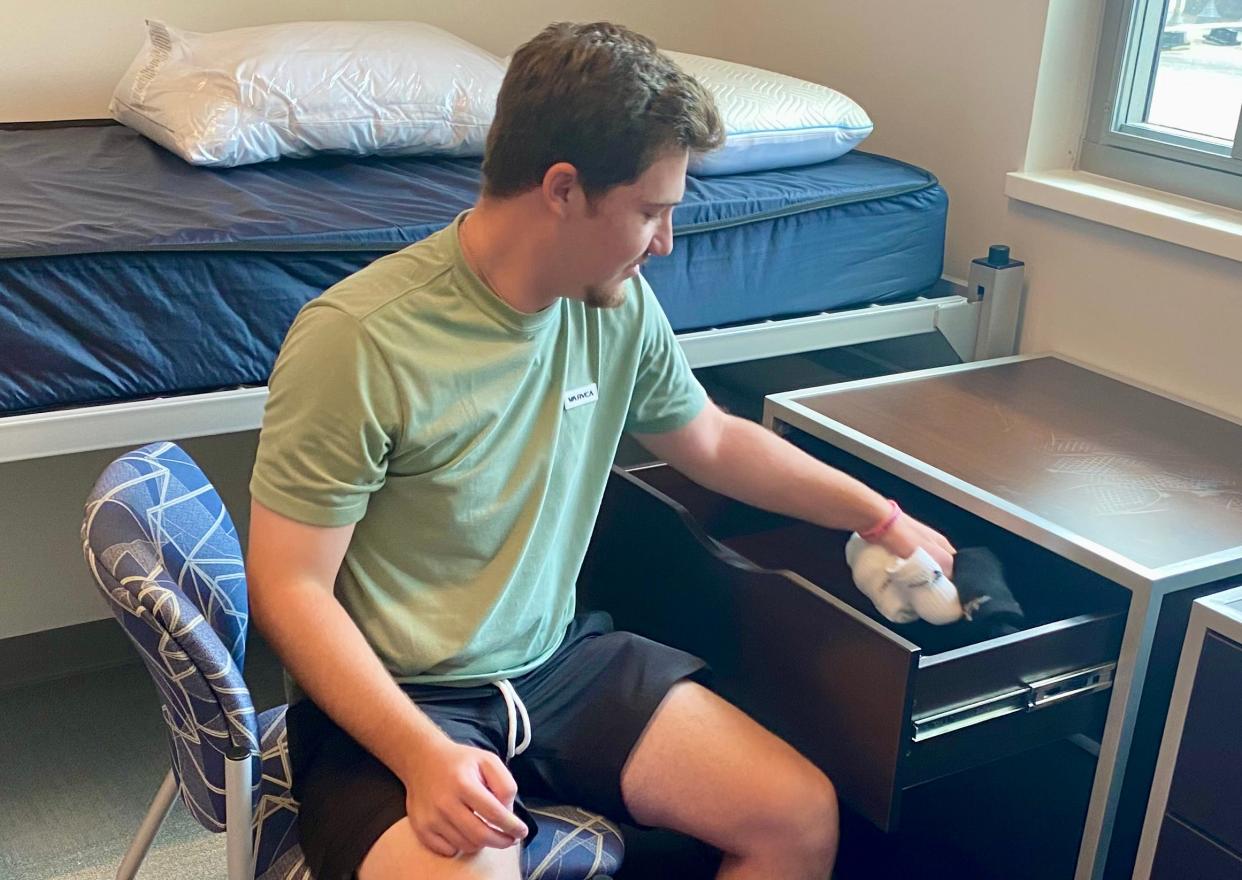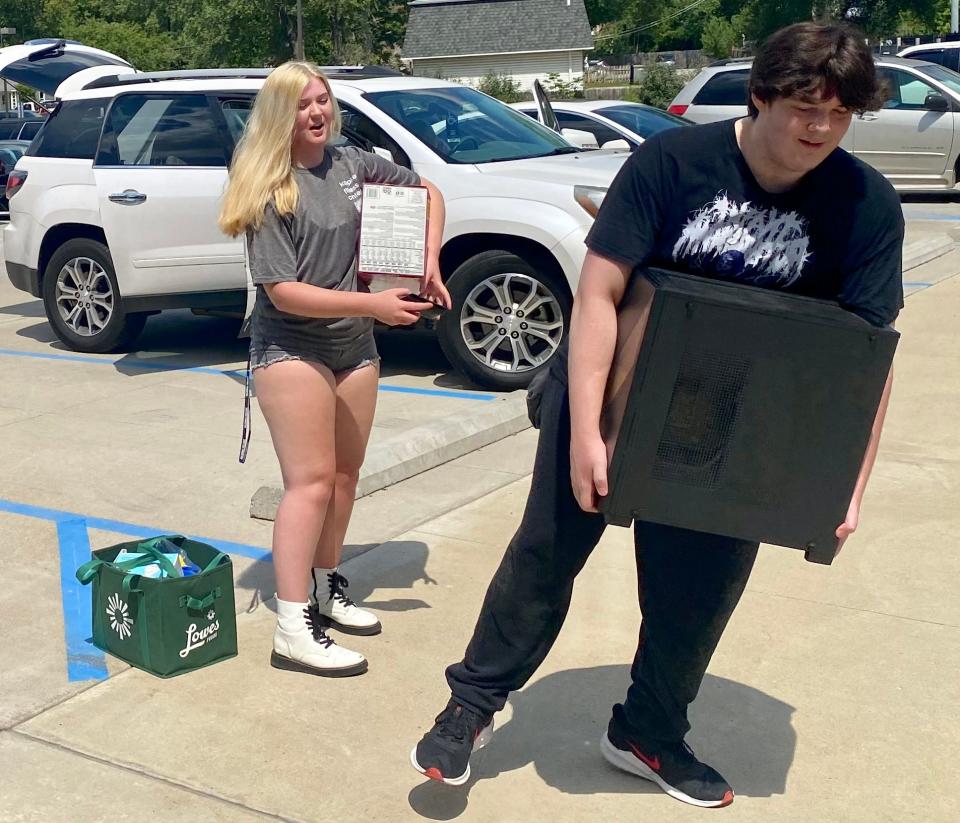Some Columbia students, and a parent, cheer Biden's student loan forgiveness plan, but not everyone

Some Columbia College students on Wednesday said President Biden's plan to forgive student loans could benefit them.
But perhaps the biggest fan of the proposal on campus during freshman move-in day was the mom of a student, still paying off more than $40,000 in student loans of her own.
A University of Missouri economics professor said the only economic benefit would be to the borrowers whose loans are forgiven.
More than 43 million people have federal student loan debt, with the average borrower having around $37,000 in debt, based on data from the Education Data Initiative. The outstanding federal loan balance is $1.6 trillion.
The plan would cancel $10,000 in student loan debt per eligible borrower, which is a figure Biden campaigned on. It would be limited to borrowers with family incomes of $125,000 or less.
More: Mary Grupe is a 2001 Hickman High School grad. Now she's the principal at her alma mater
Forgiving $10,000 per borrower would erase $321 billion in student loan debt, based on a study by Liberty Street Economics. The study states it would completely remove student loan debt for about 12 million people, around one-third of borrowers.
A study from the Wharton School of the University of Pennsylvania determined that forgiving $10,000 would cost the federal government between $300 billion and $980 billion over 10 years.
Freshman Brandon Smith, from North Carolina, on Wednesday was moving into New Hall at Columbia College, assisted by sophomore Sage Roseman-Lawson, from Anchorage, Alaska.

"It will be very useful," Smith said. "That will benefit me."
Roseman-Lawson said her family has had financial issues that have created difficulties.
"I definitely think it's a great idea," she said. "I definitely have student debts."
Noah Sperling, from Irvine, California, said the plan "probably" would help him "at some point."
Mom Dana Sperling, who was helping her son move in, said it could help her now.
"As someone who has student loans to pay off myself, I think it's fantastic," she said.
More: University of Missouri enrollment holds steady, with increase in number of freshmen
She has $44,000 remaining to pay off on student loans after getting her bachelor's degree in 1997 and her master's degree in 2000.
The loan forgiveness could allow some students to return to complete their degree, said Dixie Williams, vice president for enrollment management and marketing at Columbia College.
"There are a lot of things we already do for borrowers," Williams said. "Many of them leave without debt."
The federal student loan forgiveness could have unintended consequences, said Joe Haslag, economics professor at MU.
"The benefits are limited to those who are going to get the forgiveness," Haslag said.
Haslag dismissed the idea that the plan would increase inflation, because it doesn't reflect an infusion of money into the economy.
"There's no extra spending," he said. "This is a feature of income redistribution."
It's going to change loan conditions in the future, he said.
More: New MU nursing building ready to welcome students displaced by construction, pandemic
"It's going to change the terms of those loans," including potentially higher interest rates, Haslag said.
The plan could increase the chances that university officials increase tuition rates, Haslag said.
Biden campaigned on the student loan forgiveness proposal, and Republicans are charging that he's after student votes with the plan.
It's common for politicians to want to appeal to their voters, Haslag said.
"From a purely economic standpoint, it's not hard to understand what the motives are," he said. "But there are unintended consequences that go along with that."
Classes start Monday at Columbia College.
Roger McKinney is the education reporter for the Tribune. You can email him at rmckinney@columbiatribune.com or call 573-815-1719. He's on Twitter at @rmckinney9.
This article originally appeared on Columbia Daily Tribune: Some in Columbia cheer Biden's student loan forgiveness, but not all

